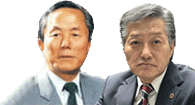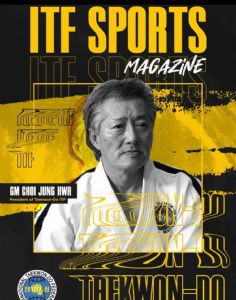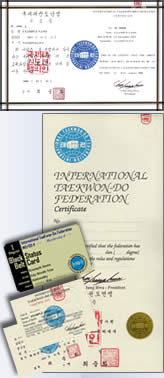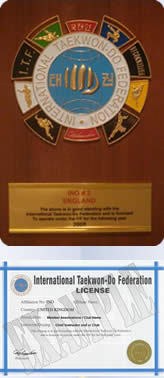The Black Belt in Structural Engineering
By
When a person trains in martial arts long enough, he eventually receives a black belt to wear with his uniform. Once he obtains this belt, he does not declare that he has a black belt; he does not claim that he owns the black belt, nor even that he wears the black belt. What he says is that he is a black belt. The training that earned him the new belt color has changed his entire identity, and symbolizes much more than just a reward or medal of achievement in the martial arts.
Engineers are the same. We do not merely act as Engineers only during the times when we are working on a project or only in the office; but the title of Engineer remains with us on the weekend at home, and in the bowling alleys, restaurants and churches as well. We have had our very identities changed by the training that we have received, and we do not want to separate ourselves from the title that we use; Engineer with a capital E.
I might state the fact that I am an Engineer upon meeting another person for the first time. Most of us consider this line of work as something to be proud of, and something that defines our very being and purpose on the planet Earth. The title Engineer is a role that defines us just as the color of the belt defines the martial artist.
I agree with
Not only am I a 5th degree black belt in Taekwon-Do, I have also recently published a science fiction novel called The First Degree. It is the story of a Structural Engineer who is a student of Taekwon-Do, and who has some surprising adventures involving space and time travel, alien life forms, deadly weapons, amazing computer technology, and interesting characters doing interesting things. Of course, in order for me to be successful as a new author, my publisher must sell enough books to make money; and the more copies we sell, the more success I will have in promoting what we as Structural Engineers do. Becoming a successful Author, with a capital A, will provide me with more opportunities to speak to audiences of people who will listen as I tell them about what we do as Engineers. I can tell stories and explain things in a way that they might enjoy, as they learn to understand better who we Engineers really are. I want to make them more aware of us, just as
I will probably never get called by a reporter about the fact that I am an Engineer. However, now that I have written a novel, someone at a newspaper or television station might want to interview me. Then, when I mention that I am also a black belt in martial arts, that will probably find its way into the story as an entertaining bonus for the audience. I know that in such an interview, I will also mention that I am a Structural Engineer and present this fact in a way that will be perceived as a bonus, as well. Perhaps I will tell the audience something that they did not know about bridges or buildings. This exposure of the world of engineering would be possible because I had accomplished something supposedly not related to engineering.
What opportunities do you have to connect your hobbies, interests, and non-professional accomplishments to engineering? It could be said that writing fiction, doing martial arts and inspecting bridges are all separate and unrelated activities, but I beg to differ - because I am an Engineer who does all three of these, they are inter-related, as far as I am concerned. I encourage all Structural Engineers to try, when you assemble with non-engineers, to let the audience know that your identity includes Engineering as well as the activities that brought you together.
Finally, we need to be more interesting. I love to hear about Engineers standing in front of an audience, or writing books and articles that get read by many people, and effectively talking about engineering and scientific subjects in a way that truly interests the audience. Maybe you can help me to become one of those entertaining, successful Engineers by buying my book and recommending it to others - or maybe you can become such a person yourself. Too often, we brilliant engineers are lacking in presentation and communication skills, as smart as we may be in our various fields of expertise. The audience gets bored if we fail to entertain them. I think that we should find ways to entertain people, and in the process, make sure that they know that we are Engineers.



 Log In
Log In
 Write an Article
Write an Article


 Back
Back


